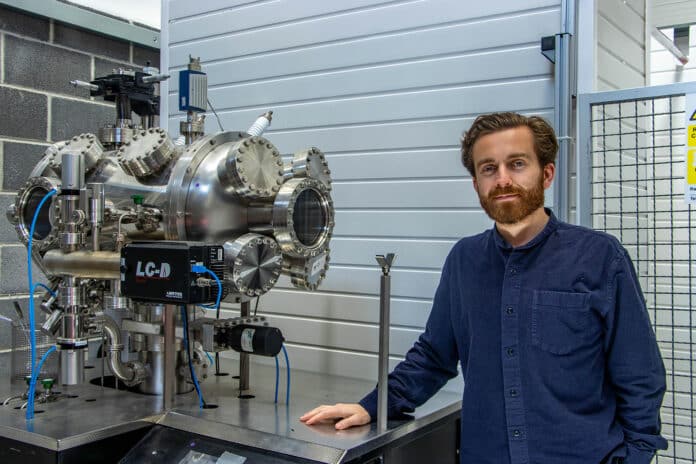A company co-founded by a University of Bristol academic is making waves in cancer diagnosis and treatment through a revolutionary technology.
Co-founded by University of Bristol Research Associate Dr Tom Wallace-Smith, Astral Systems has developed and demonstrated a first-of-its-kind Multi-State Fusion (MSF) Reactor that can be used to create essential medical isotopes. These isotopes can be used for killing cancer cells in radiotherapy and as radioactive tracers in the body to help detect medical conditions through imaging.
Medical isotopes are radioactive substances used in medicine for various diagnostic purposes and treatments of critical diseases. These medical isotopes produce radiation that can be detected and analyzed by healthcare practitioners. This provides them with significant information on the structure and functioning of organs and tissues in the human body. They have been helping to save lives for decades by enabling the medical profession to scan for cancer and directly treat tumors and cancerous cells at the source.
However, due to the dependence on aging fission reactors in Europe and other regions for the supply of radioisotopes, many healthcare professionals in the UK and other areas are facing difficulty in accessing the required resources to provide essential care. A UK Government report in 2017 revealed that only six reactors accounted for more than 90% of the world’s medical isotope supply and that five of them will close by 2030.
Astral Systems’ MSF Reactor is a compact and scalable solution that can generate medical isotopes locally and on-demand, offering the potential to secure the supply of these medical isotopes and, in turn, improve patient outcomes.
The company aims to build small fusion reactors that could be installed in regional isotope factories around the UK and internationally. This decentralized strategy promises to provide a more flexible and cost-effective radioactive sample supply.
By establishing smaller-scale reactors, the company is hoping to reduce the risks associated with dependence on a few large reactors. This will ensure a continuous and reliable production of medical isotopes.
“Our systems have been developed far more quickly and can produce isotopes at a much smaller scale than alternate technologies. This means medical isotopes can be produced near to or within hospital hubs without having to rely on giant international nuclear fission plants,” said Talmon Firestone, Co-Founder and CEO of Astral Systems. “This will dramatically increase the diagnostic and treatment techniques available to clinicians, reducing hospital wait times and costs while improving the quality of care.”
Astral’s compact technology can be deployed to decentralize medical isotope production into smaller distributed facilities, ensuring a more resilient supply chain. This will increase access and decrease costs for nuclear medicine researchers and clinicians to explore the use of shorter-lived or exotic isotopes for more effective procedures and applications.
In 2021, the University of Bristol was awarded a £1 million research grant in partnership with Astral Systems and the Science and Technologies Council (STFC) to optimize and support the commercialization of their technology while demonstrating medical radioisotope production under the project named ‘MicroNOVA.’
“Not only does our MSF Reactor provide a mechanism to develop medical radioisotopes safely and more efficiently, but it also offers an ideal testbed for understanding what a full-scale fusion power plant will look like and how it might behave during operation,” Dr. Wallace-Smith said in a statement.
In the near future, the company is looking to demonstrate and then scale up the production of Iodine-131, Lutetium-177, and Actinium-225, amongst a few others.
